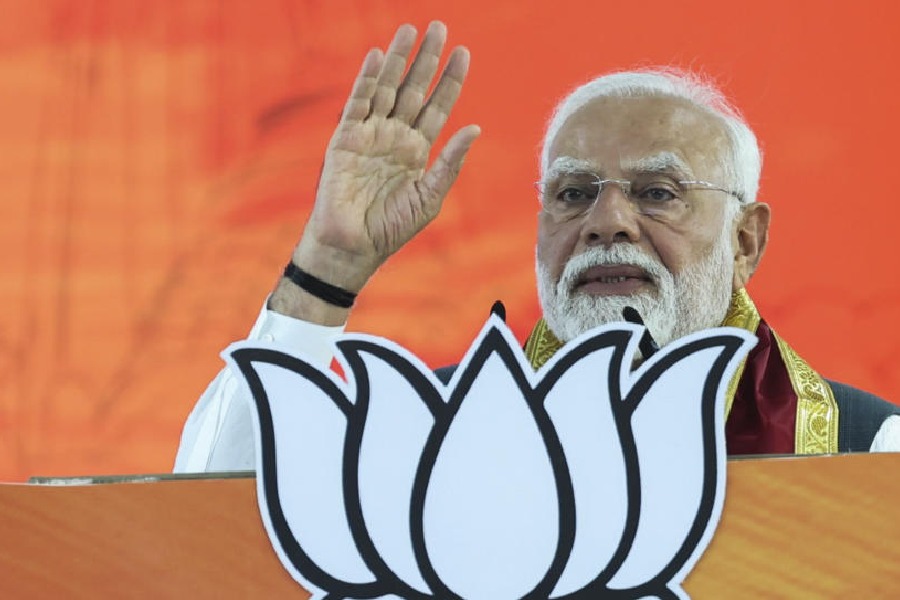Prime Minister Narendra Modi launched the BJP’s Mission Bengal for the 2016 Assembly election on Thursday afternoon from Alipurduar.
The bulk of Modi’s speech was around the familiar themes of alleged corruption under chief minister Mamata Banerjee’s government, the stonewalling of centrally sponsored welfare schemes, and the success of Operation Sindoor.
In two successive elections, since the BJP’s sudden rise in the 2019 Lok Sabha election, the party has not been able to turn, in cricketing terms, the scores of 40s and 50s into centuries.
Change in the party’s Bengal unit captaincy from Dilip Ghosh, who has fallen foul of the BJP’s central leadership, to Balurghat MP and junior Union minister Sukanto Majumdar and the over-dependence on Suvendu Adhikari has done little to change the BJP’s fortunes in Bengal.
After the fall of Arvind Kejriwal in Delhi and to a certain extent Uddhav Thackeray in Maharashtra, Mamata is the only rival politician who can throw the gauntlet at Modi.
The battle for Bengal is not simply a political one; it has turned into a personal one between Modi and Mamata, who has been trying to position herself as the most viable opposition to Modi and the BJP.
Why Modi chose Alipurduar
North Bengal, where Alipurduar is, has been a happy hunting ground for the BJP in the past elections. But from last year’s Lok Sabha election onwards, the party has seen a mild downward slide in its emerging stronghold, thanks to some back and forth in the form of defection, a familiar phenomenon in Bengal’s political theatre.
From the 30 legislators that the BJP had from the region after the 2021 Assembly election, around five have defected to the Trinamool. Significantly, Modi’s party has also lost the Cooch Behar Lok Sabha seat, which it had won in 2014 and 2019, to the Trinamool in the last Lok Sabha election.
Modi’s trip to Bengal will be followed by the BJP’s launch of a media campaign geared for the 2026 Assembly election. The prod from Modi was what the Bengal unit of the party, most often caught napping, probably needed.
The messaging at Modi’s venue was not just for a political rival, but also an unfriendly and increasingly belligerent neighbour, Bangladesh.
Sources in the state BJP said the decision to hold the meeting at Alipurduar had come from the Prime Minister’s Office.
The selection of Alipurduar, close to the Hasimara airbase, is seen as strategic messaging by Modi and his team, keeping the link to India’s display of superior air power over Pakistan in the recent four-day conflict.
Another locational significance for Alipurduar is its being a part of the Siliguri Corridor or Chicken’s Neck, the only land link that the mainland has with Sikkim and the Seven Sisters in the northeast. The geopolitical vulnerability of this zone has always been a chink in India’s armour. The Bangladesh interim government’s chief advisor Muhammad Yunus’s comment made on a trip to Beijing in March escalated tensions between the former friends.
Before his public address, Modi laid the foundation of a Rs 1,010-crore-plus piped natural gas project for the districts of Cooch Behar and Alipurduar, which would provide fuel to over 2.5 lakh households as well as generate jobs.
The selection of the two remotest districts in Bengal over Kolkata underlines the importance that the region holds for the BJP. The BJP too is eyeing the route to Kolkata from rural Bengal, maybe from the north.










